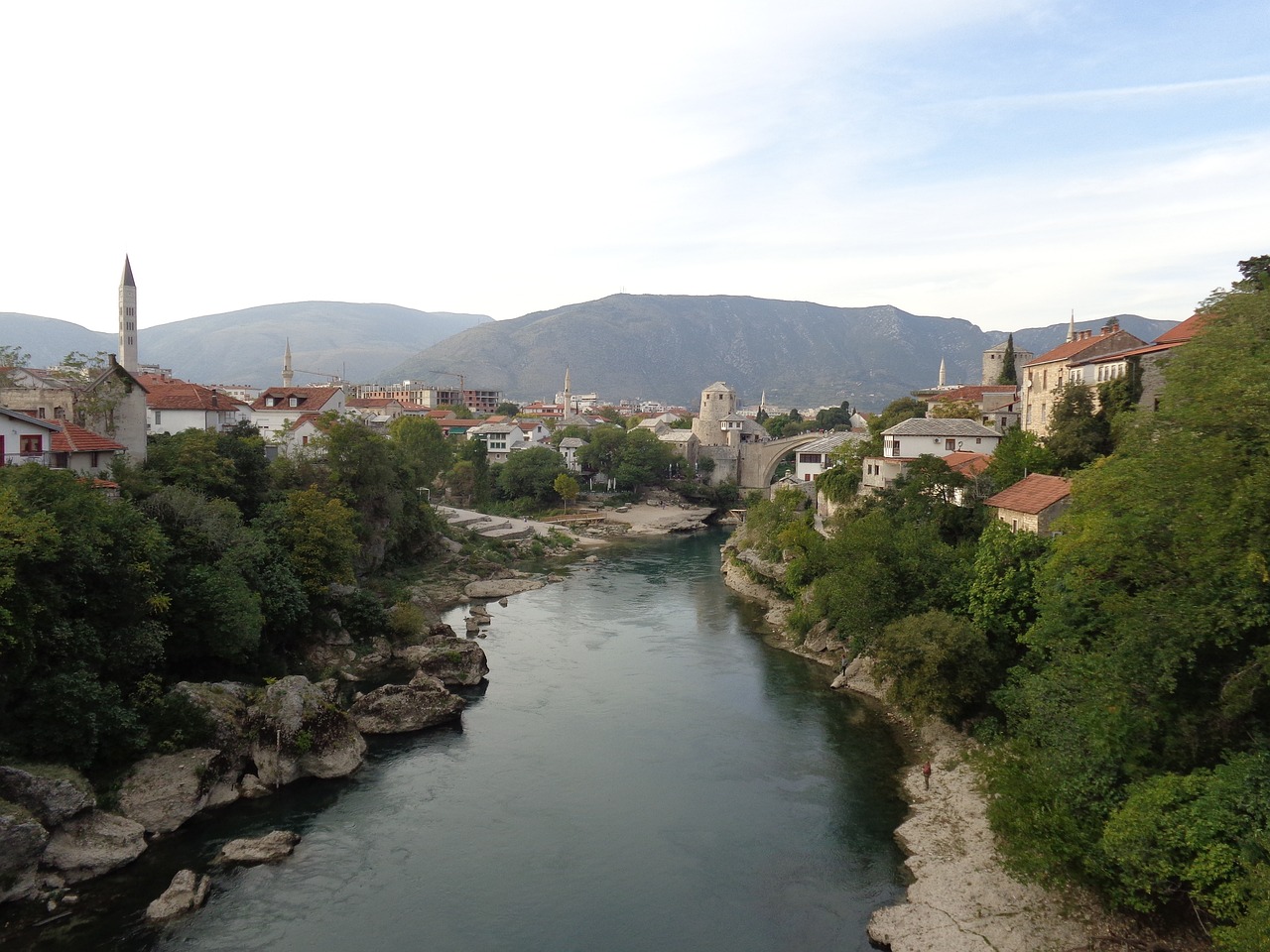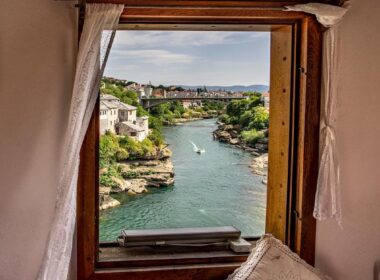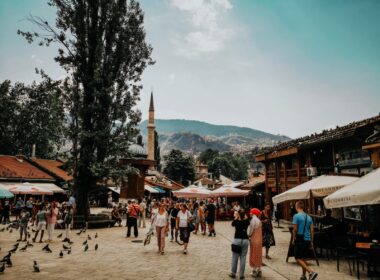Summary. Do’s and Don’ts in Bosnia and Herzegovina is a fascinating article that explores the cultural etiquette of this Balkan nation. From the capital city of Sarajevo to the quaint mountain villages, this article explains customs and traditions that must be respected and followed while visiting the country. From behavior in mosques and churches to proper dress codes, readers will learn the essential dos and don’ts to ensure a respectful and enjoyable experience when visiting this beautiful destination.
Are you planning to visit the beautiful country of Bosnia and Herzegovina? Would you like to know about the culture and customs of the country? What do’s and don’ts should be kept in mind while you’re there? If yes, then this blog is the right place for you! This blog will provide you with some useful tips on the do’s and don’ts in Bosnia and Herzegogiva that you should keep in mind during your stay in this spectacular nation. From the captivating mountains of Sarajevo to the breathtaking views of the beaches of Neum, Bosnia and Herzegovina has many stunning sights to explore.
Have you ever thought about which type of dress code is expected? Or what kind of gift giving culture is followed in the country? Here in this blog we will give you all the necessary information and help you determine the do’s and don’ts in Bosnia and Herzegovina. Respect for other cultures, tradition and customs is the key do of the country. Be mindful of the fact that Bosnia and Herzegovina has a multi-cultural society and it is a common courtesy to show respect to each ethnicity.
Moreover, learning some basic phrases of the Bosnian language will be appreciated by locals. These do’s will make sure your visit is a pleasant one. On the other hand, some of the don’ts you should keep in mind are to not discuss religion and politics in public and to not enter a place of worship without permission. Other things may include avoiding physical contact with strangers, refraining from serving alcohol to minors, and not taking photographs without asking for permission. Avoid doing anything that could be perceived as offensive by the locals.
Do’s:
- Respect local traditions: Bosnia and Herzegovina is a diverse country with different cultures and traditions. Respect these differences, be kind and courteous, and don’t impose your values on others.
- Explore the outdoors: Bosnia and Herzegovina is a naturally beautiful place so you should take the opportunity to explore its many outdoor attractions.
- Embrace local cuisine: There are plenty of delicious local dishes to sample in Bosnia and Herzegovina, from sarma and ćevapčići to burek and pita.
- Check with your embassy for rules and regulations: Before you travel, take the time to check with your embassy for any information about local laws and regulations.
- Show respect for religious sites: Bosnia and Herzegovina is a majority Muslim country, and many religious sites are off-limits to non-Muslims.
- Be prepared for a bumpy ride: Bosnia and Herzegovina’s roads can be difficult to navigate due to potholes. Bring a good sense of humor and be prepared for a bumpy ride.
Don’ts:
- Don’t drink and drive: Drunk driving is illegal in Bosnia and Herzegovina and carries heavy penalties.
- Don’t take photographs of military sites: Taking photographs of or near military installations is strictly prohibited.
- Don’t litter: Unfortunately, some tourists don’t think about the impact of their trash.
- Don’t show politeness: In some parts of the country, it’s important not to show politeness, as it can be misinterpreted.
- Don’t be disrespectful to local people: Treat everyone in Bosnia and Herzegovina with respect and be mindful of cultural traditions.
- Don’t be judgmental: Respect Bosnia and Herzegovina’s diverse religions, lifestyles, and political opinions. Don’t be judgmental and try to learn from different cultures and beliefs.
How to Respect the Country’s Culture and Traditions ( including clothing, manners, religious practices, etc.)
When travelers plan a visit to a new country, the last thing they want to do is offend its culture or traditions. Bosnia and Herzegovina is no exception. In order to show respect and honor this diverse nation, there are a few do’s and don’ts travelers should consider before and during their visit. When it comes to clothing, the same modesty rules that apply to other countries also apply in Bosnia and Herzegovina. It’s best to dress modestly, particularly when visiting religiously significant places.
When it comes to manners, local restaurants and cafes should always be respected, as should the local customs and traditions. Be sure to ask permission before taking pictures of people or religious sites, and don’t be surprised if someone turns you down. It’s also a good idea to avoid expressing any opinions about politics, especially in public. Religious practices should be observed and respected.
If you are invited to someone’s home for a meal, it’s polite to bring a small gift for your host, such as flowers or sweets. Overall, Bosnia and Herzegovina is a wonderful place to explore. As long as travelers remember to respect the nation and its culture, manners, and religious practices, they can expect to have a pleasant visit. By keeping these do’s and don’ts in mind, visitors can ensure that their experience in Bosnia and Herzegovina is enjoyable and memorable for all the right reasons!
What to Eat and Drink in Bosnia and Herzegovina: Dos and Don’ts for Dining Etiquette
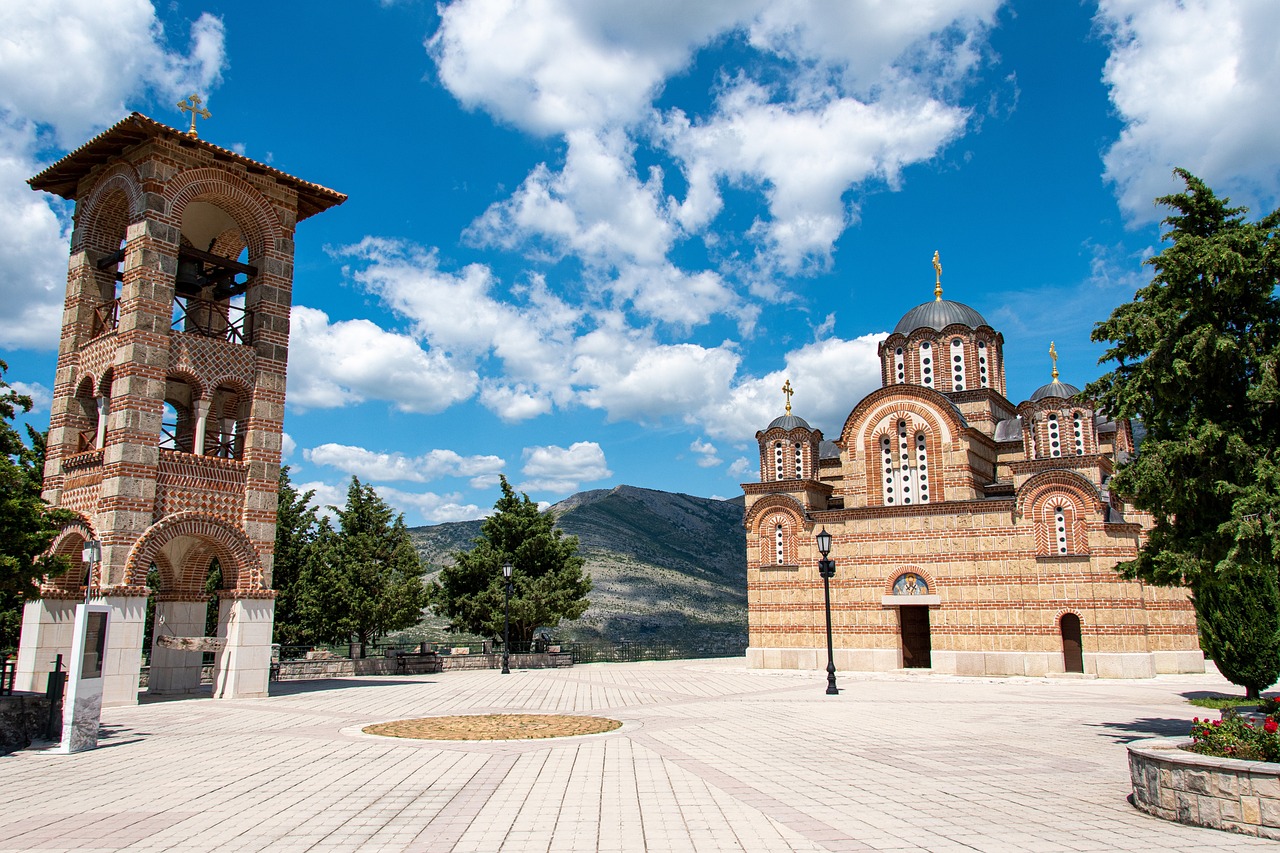
When visiting Bosnia and Herzegovina, it is important to be aware of the local customs and dining etiquette. If you want to enjoy your time in this beautiful country, here are a few dos and don’ts to keep in mind while eating out or enjoying a meal. A key thing to understand when in Bosnia is to try coffee, Sarajevo-style. Sarajevo coffee has the perfect mix of coffee, milk, and sugar, resulting in a fragrant and unique blend that can only be found in Sarajevo cafes.
Many eateries in Bosnia serve excellent espresso-style coffees that can be enjoyed in a cozy atmosphere. In Bosnia, no meal is complete without a glass of local traditional rakija. It is a brandy made from fruits like grapes, pears, or plums and is one of the national drinks of Bosnia.
When it comes to eating out, a few tips should be taken into consideration. Firstly, it is considered polite to wait to be seated by the server, who will usually bring you to a table and lay down a special cloth, called a ćilim. This is something that you should not move until you have paid your bill. Secondly, typically the host will pay the bill but it is acceptable for visitors to offer to pay and it is considered polite to insist on paying. Lastly, it is always polite to thank the server for their service. When it comes to local cuisine, there are a few dishes you should try while in Bosnia.
From the north of the country, you should give a try to the Balkan specialty, burek. It is a pastry made of dough and often filled with cheese, meat, or potatoes. And of course, for dessert, there is always palačinke, thin pancakes filled with either jam, cheese, cream or chocolate. To ensure that you have the best experience while dining in Bosnia and Herzegovina, remember to follow these dos and don’ts of dining etiquette. Always be courteous and polite, try the local coffee and rakija, offer to pay when out to eat, and don’t forget to enjoy the delicious local dishes that the country has to offer.
Staying Safe While You Explore: Tips for Travel in Bosnia and Herzegovina

From thrilling mountaineering in Sarajevo to cozy beachside naps in the coastal city of Neum, Bosnia and Herzegovina offers a wealth of adventure for prospective travelers. Despite its stunning landscapes and fascinating cultural history, however, travel in Bosnia and Herzegovina comes with its fair share of risks. Without following basic safety measures, travelers can easily find themselves in risky situations.
To ensure a safe and pleasant visit, travelers should familiarize themselves with the country’s do’s and don’ts before taking their journey. First and foremost, travelers should always remain aware of their surroundings and avoid walking alone at night. With pickpockets and thieves operating in many of the country’s crowded tourist spots, it’s important to stay alert and use common sense when traveling.
Avoid areas that are known to be particularly unstable or dangerous, and always consult local authorities when navigating unknown areas. When taking public transportation, it’s important to familiarize yourself with the culture’s etiquette. For instance, in remote areas, women typically occupy the front seats and men occupy the back – making compliant and respectful behavior critical to avoiding animosity.
Additionally, travelers should be aware that the majority of Bosnia and Herzegovina’s roads are poorly maintained, meaning that regular automobiles can quickly become stuck in mud or snow. Additionally, basic items such as toiletries, food, and lodging can be difficult to find outside major cities, making thorough planning ahead of time essential.
Be mindful of your behavior in public, and avoid engaging in disorderly conduct. Additionally, it’s important to note that alcohol is generally only served in nightclubs and bars, making it difficult to find comprehensive places to buy and consume a drink. By following the above steps, travelers can ensure a safe and pleasant visit to Bosnia and Herzegovina. With efficient planning and strict attention to safety, travelers can enjoy all of the country’s unique attractions and experiences this fascinating part of Europe has to offer.
Timeless Treasures: Must-See Tourist Attractions and Experiences in Bosnia and Herzegovina
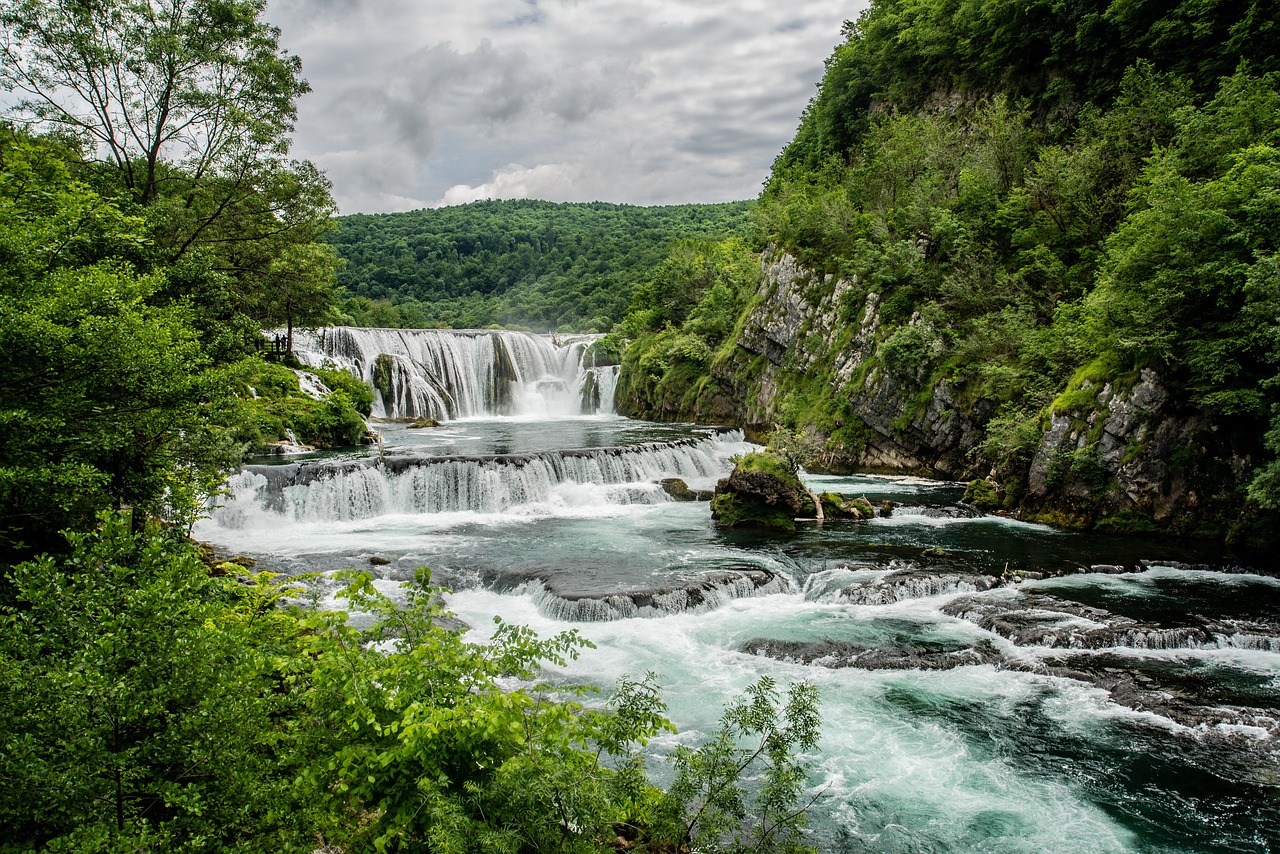
Bosnia and Herzegovina has a long and glorious history, making it one of the must-see destinations in the region. From its stunning landscapes, to its vibrant culture, there is something for every traveler. Even if you can only make a short visit, there are plenty of experiences to choose from that you won’t want to miss. If you’re planning a trip to Bosnia and Herzegovina, here are a few places and experiences to add to your list. The city of Sarajevo is a must-see, especially because of its interesting blend of East and West.
The city is a cultural crossroads, reflected in its architecture, cuisine, and the vibrant energy of its people. The city is surrounded by the Dinaric Alps and its winding cobblestone streets lead to vibrant cafes and vibrant bazaars. Take a walk through the lively Baščaršija Square, the city’s old Ottoman center, or visit the old Austro-Hungarian quarter, where gorgeous buildings are interspersed with mosques, churches, and synagogues.
For a taste of history, the medieval city of Mostar is worth a visit. Its iconic Stari Most, or Old Bridge, a symbol of peaceful coexistence, is surrounded by incredible examples of Ottoman architecture. Watch expert divers plunge into the Neretva River from the bridge’s peak, or browse through the city’s winding cobblestone streets to find bustling markets, bazaars, and craft shops. Be sure to visit the Karadoz-bey Mosque, the Koski Mehmed Pasha Mosque, and the Halebija tower, all of which provide stunning views of the river and city. If you’re looking for a nature escape, the Sutjeska National Park is a must-see. Home to Europe’s oldest national park, Sutjeska is famous for its natural beauty, waterfalls, and rugged terrain. Enjoy a trip through the stunning mountains, or take a dip in the Željin Lake, thought to be the deepest in the country.
Finally, no visit to Bosnia and Herzegovina is complete without experiencing the traditional food and drink. Spend a night enjoying traditional music and dance, or indulge in a traditional pot of cevapi, Bosnian meat kebabs, or burek, a pastry filled with cheese, meat, or vegetables. Of course, you can’t forget the most iconic aspect of Bosnian cuisine—the delicious ćevapi, a mix of minced beef and pork found all over the country.
End your evening with a glass of local beer or rakija, a potent brandy, while enjoying some of Bosnia and Herzegovina’s best traditional music. Whether you’re looking for an adventure, a taste of history, or a chance to relax, Bosnia and Herzegovina has something for everyone. Just be sure to do your research and follow the local do’s and don’ts so you can be respectful and have a safe and enjoyable visit.
Exploring Historical and Natural Wonders in Bosnia and Herzegovina (e.g. parks, castles, museums, etc.)
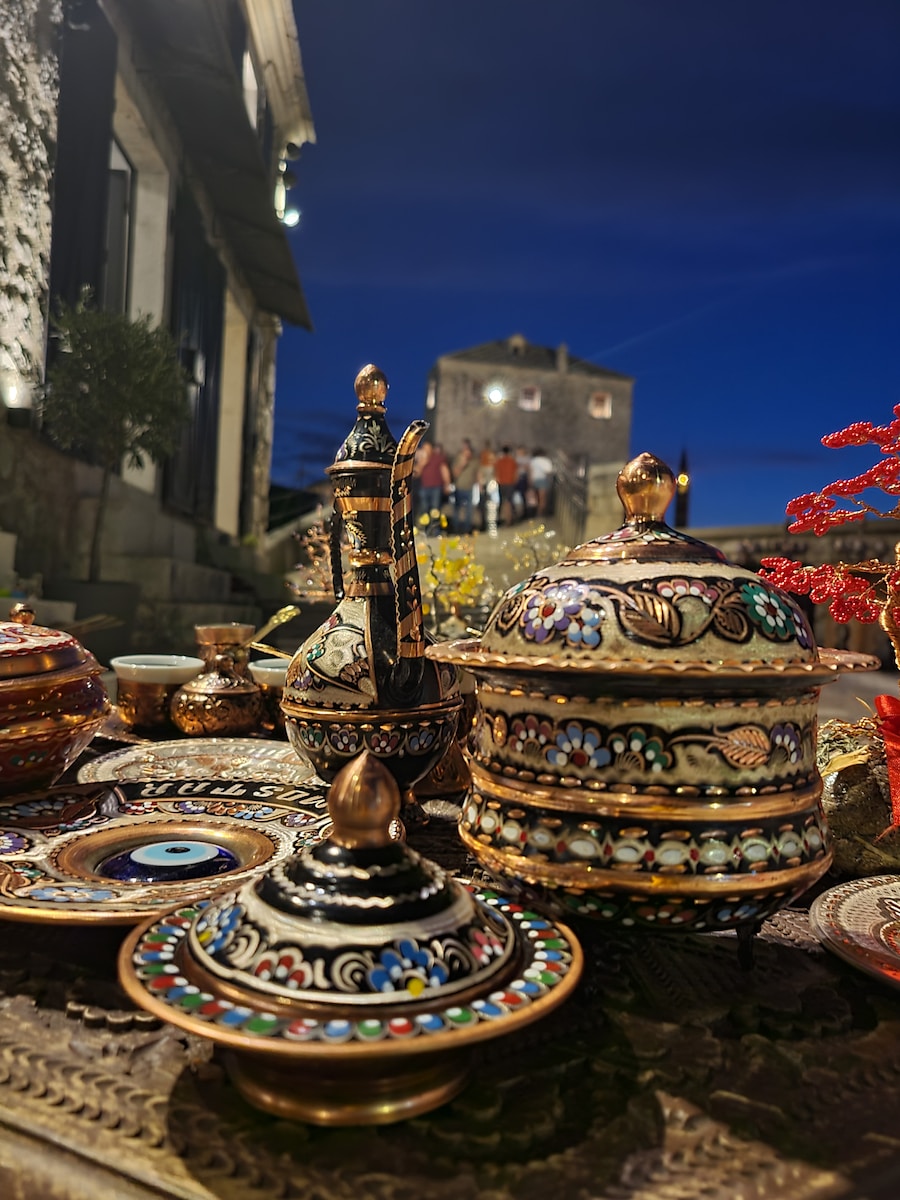
If you’re a traveler who loves to explore places brimming with historical and natural wonders, then Bosnia and Herzegovina should certainly be in your bucket list. From verdant nature reserves to medieval castles and ancient architectures, this small nation in the Balkan region has plenty of sights to behold. Indeed, a trip to Bosnia and Herzegovina is sure to be full of adventure and discovery. When heading to this country, it is important to be mindful of the local culture and etiquette.
Whether it’s the do’s and don’ts on how to dress, the language spoken by locals, or the religious and political history of the region, it is advisable to equip yourself with knowledge beforehand to make sure you don’t offend anyone or do anything that can place you in an inconvenient situation. For starters, while visiting the local attractions, you should try to dress in modest clothing. This especially applies to places of religious significance such as mosques, churches, and monasteries.
When conversing with the locals, it is best to use the local language of Bosnian and leave politicking off the table since it is an extremely sensitive subject in this region. When it comes to exploring natural wonders, there are a lot of parks to visit in Bosnia and Herzegovina. For instance, Sutjeska National Park is home to the highest mountains and peaks in the Balkans.
It is known for its stunning glacial lakes, breathtaking valleys, and lush meadows as well as plenty of species of fascinating plants and animals. Meanwhile, Tara National Park is known for its stunning canyons, deep ravines, waterfalls, and deciduous forests. Apart from that, Bosnia and Herzegovina is also home to a plethora of fortresses and castles that serve as living monuments to the political and military struggles of its past.
Meanwhile, the 14th-century fortress of Bobovac is the site of the old royal court of the kingdom of Bosnia. If you’re a history buff, then a visit to the Museum of the Siege of Sarajevo is also a must. Ultimately, whether you’re a lover of nature or an admirer of history and culture, Bosnia and Herzegovina has something for everybody. With a little research under your belt, you will be sure to have the time of your life exploring this fantastic country. Remember to stay respectful and you will be sure to make the most of your trip!
Knowing the Lay of the Land: Laws, Risks and Other Things to Consider Before You Go
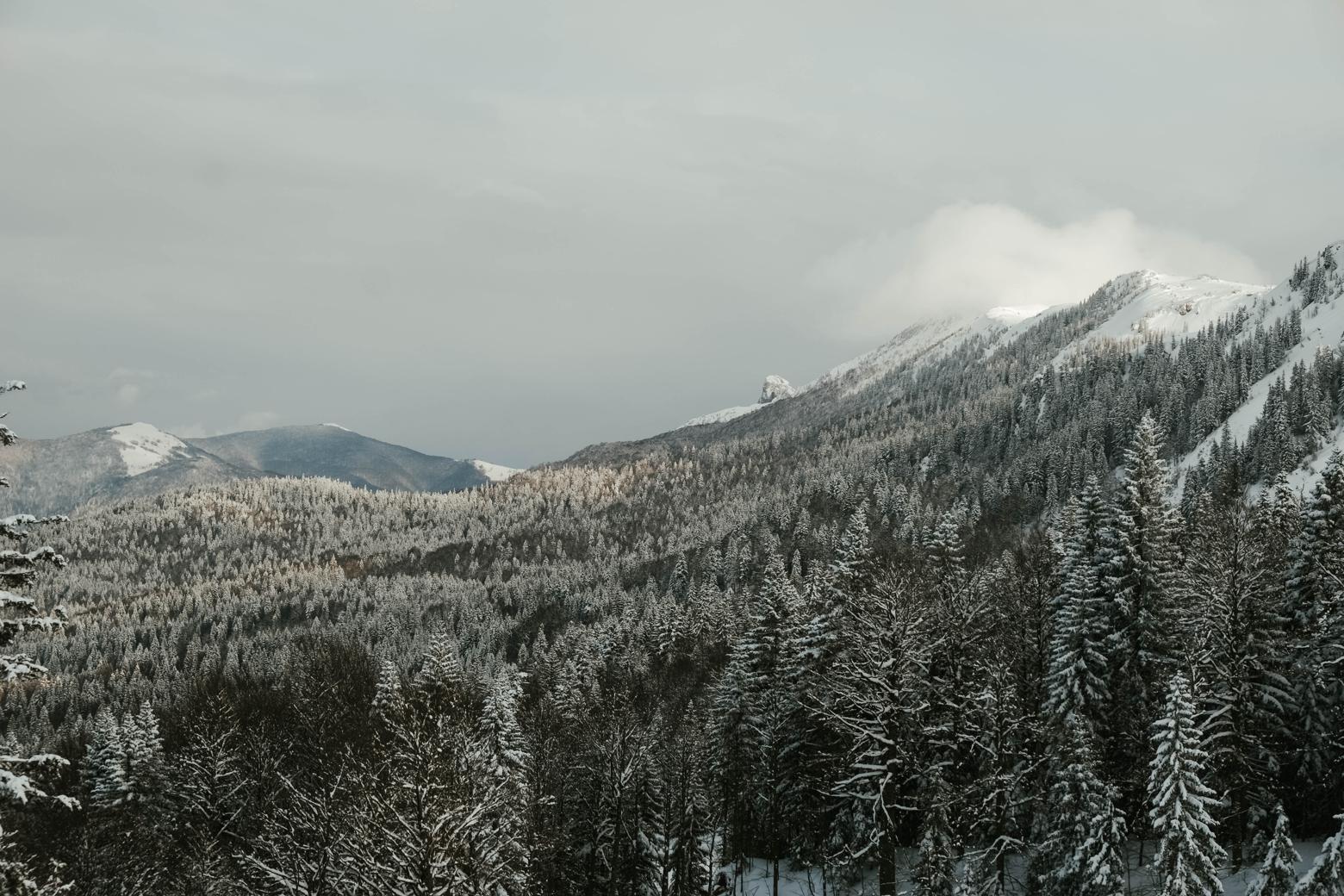
Exploring a new place is an exciting adventure. You’re filled with anticipation as you take the first steps on a journey that will take you to new lands and experiences. But, before embarking on a new trip, it’s important to be aware of the legalities and risks associated with exploring a new culture and country. From Bosnia and Herzegovina comes a unique set of dos and don’ts that all travelers should be aware of before visiting. When it comes to travel in Bosnia and Herzegovina, it’s important to be aware of the local customs and laws to ensure that you have a pleasant and safe experience. To start, it’s advisable to learn some basic words and phrases in the local language to make communications easier.
It’s also a wise idea to be familiar with local dress codes and norms. In general, Bosnia and Herzegovina is quite moderate when it comes to clothing – just make sure to cover your shoulders, knees, and chest in sharia law parts of the country. When it comes to crossing borders, always make sure to be respectful and well-behaved, as officials are just doing their job. It’s important to be ready to show your passport or other ID proving you are legally allowed to enter the country. Additionally, it’s advisable to know in advance which items you are allowed to bring into the country.
Both smoking and drinking are legal in Bosnia and Herzegovina, however, public drunkenness is not allowed, so keep this rule in mind if you decide to indulge. And of course, with every trip comes potential risks. Be aware of any areas that have heightened security concerns and keep your belongings close to you at all times. It’s also wise to avoid potential protests and rallies as violence and tear gas is often used by authorities in these circumstances. By familiarizing yourself with the legalities and laws associated with different countries, you are one step closer to an enjoyable and safe experience while travelling. Bosnia and Herzegovina is one of those places, and swotting up on its’ dos and don’ts will help ensure your stay is as pleasant and event-free as possible.
Money Matters: Currency, Credit Cards, Cash and Other Payment Options
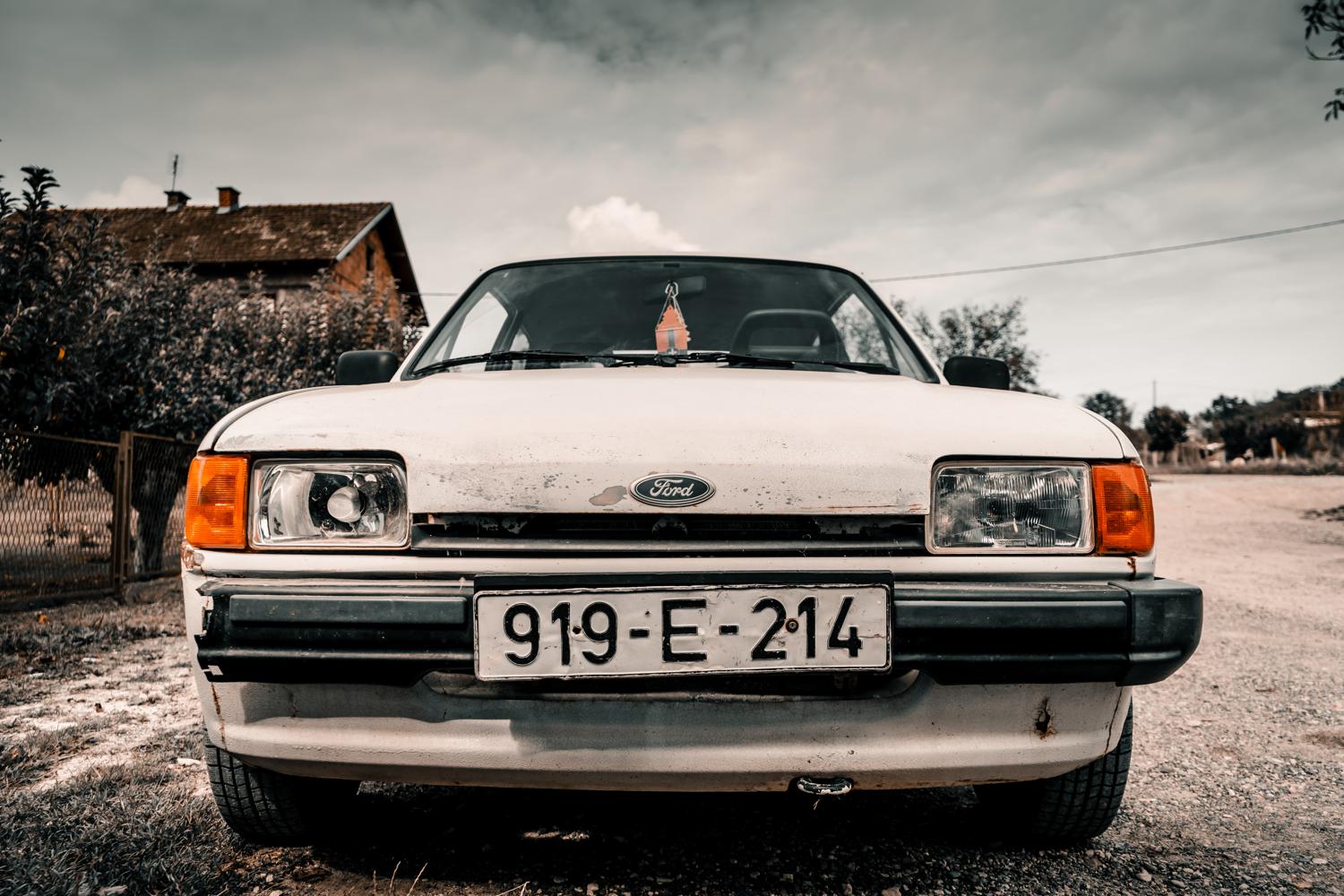
When it comes to money matters, Bosnia and Herzegovina has a number of different payment options that you can use. From cash and credit cards to cryptocurrencies and even mobile payments, there are plenty of ways to pay for goods and services around the country. However, it’s important to know how each of these money matters work, as well as the do’s and don’ts when engaging in financial transactions in the country. Cash is one of the most common payment options in Bosnia and Herzegovina. It’s accepted almost everywhere in the country and the local currency is the Konvertibilna Marka (KM), which is pegged to the euro at a rate of 1 KM = 0. 51 euro.
You should also be aware of carry limits to and from the country, as there are limits on how much you can bring in and out of the country. While cash is an easy way to pay for goods or services in Bosnia and Herzegovina, credit cards are accepted in many major stores across the country as well. debit cards are also widely used and are becoming increasingly popular. It’s important to make sure that you have the card information on hand (such as your PIN) and that you understand the fees associated with the card before you use it. Mobile payments are also becoming increasingly popular in Bosnia and Herzegovina, with services like Apple Pay and Google Pay being accepted in some stores.
Cryptocurrencies are also becoming more and more popular in Bosnia and Herzegovina, with people looking for an alternative payment option to traditional currencies. You should make sure you understand the different coins and the associated fees before using any cryptocurrency. No matter which payment option you choose, it’s important to understand the do’s and don’ts when engaging in financial transactions in Bosnia and Herzegovina. This includes being aware of any taxes or fees associated with the payment option you choose, understanding any carry limits and making sure you have the right identification and card information when using credit and debit cards. By understanding these money matters, you can ensure safe and successful financial transactions in Bosnia and Herzegovina.
Travelling Like a Local: Navigating Different Languages and Customs of Bosnia and Herzegovina
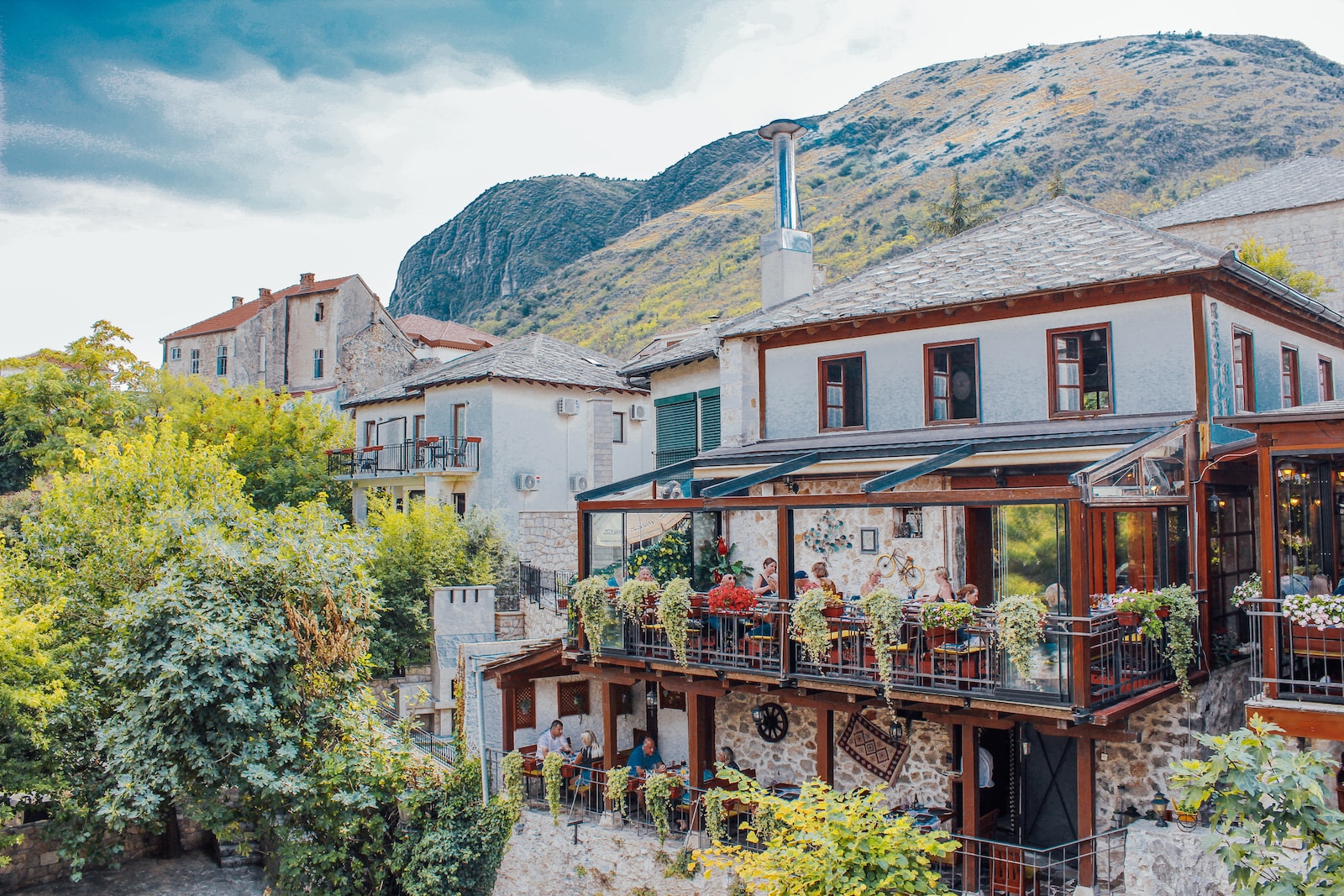
Exploring a new country can be an incredibly exciting experience, but it can also be a bit daunting if you aren’t familiar with the language or customs of your destination. If you’re looking to explore Bosnia and Herzegovina, then you’ll need to be aware of a few do’s and don’ts that are specific to this stunning country. When it comes to speaking, Bosnian, Croatian, and Serbian are all official languages in Bosnia and Herzegovina, and you’ll find that locals speak each of these to varying degrees throughout the country.
It’s important to remember that Serbian is the language spoken in Republika Srpska, while Croatian and Bosnian are spoken in the Federation of Bosnia and Herzegovina. Knowing the language of the area you’re visiting can go a long way towards helping you get around. Even if you don’t know the language, you’ll find that most Bosnians are hospitable and will try to help you out with whatever they can.
Greeting people, particularly in the older generations, involves kissing a hand or cheek and shaking hands. You’ll also need to dress modestly, as Bosnia and Herzegovina is a conservative country. Women wearing shorts, low-cut tops, and skirts are likely to attract unwanted attention. It’s also considered polite to take off shoes when you enter someone’s home. When dining in Bosnia and Herzegovina, try to keep the meal to three courses, including soup and the national dish of cevapi.
Don’t be afraid to try some of the local beverages, since Bosnia and Herzegovina is known for its alcoholic drinks such as rakija and piva. Finally, be sure to respect the local culture and religion. Though Bosnia and Herzegovina is a very diverse country with a number of different faiths, disrespecting religious sites is never acceptable. It’s also customary to use no photos or videos of people without their permission. Knowing the language and customs of a country can be the difference between an ordinary trip and a truly memorable experience. With a little bit of preparation, you’re sure to enjoy your time in Bosnia and Herzegovina.
Discover Bosnia And Herzegovina’s Hidden Gems: The Top Must-Do Experiences
Bringing It All Together
Do’s and Don’ts in Bosnia and Herzegovina: a Comprehensive Guide. Travelling to a new place can be an exciting and fulfilling experience. However, it is also important to be aware of the culture and customs of the different places you visit, so that you can ensure to enjoy a safe and pleasant trip. When travelling to Bosnia and Herzegovina, there are a few Do’s ad Don’ts that you need to keep in mind. First of all, it is important to show respect towards Bosnian culture.
Showing respect and understanding for the culture of the place you are visiting is especially important in Bosnia and Herzegovina, as this is one of the most culturally diverse places in the world. You should be sure to dress modestly and not speak out of turn, particularly in public or religious places.
When in Bosnia and Herzegovina, you should take the necessary safety is precautions. Make sure to lock your door when you are staying in a hotel or other accommodation, and keep your valuables in a safe place. Keep an eye out for your personal safety and security when in public places, and report any suspicious activities to the police. Finally, be sure to obey local laws. In Bosnia and Herzegovina, drugs, weapons and gambling are all against the law. If you are caught breaking the law, you may face jail time or deportation.
Be sure to always carry your passport with you and follow the local rules and regulations. In conclusion, there are several Do’s and Don’ts that you need to be aware of when travelling to Bosnia and Herzegovina. Show respect to the culture, customs and people of Bosnia and Herzegovina and take the necessary measures for your safety and security.
Furthermore, be aware of the laws and customs and always carry your passport with you. If you do these things, you can be sure to have a safe and enjoyable experience in Bosnia and Herzegovina. Are you planning to travel to Bosnia and Herzegovina soon? How will you ensure to stay safe and enjoy your trip?
FAQs Simplified: Your Questions, Answered
What was the previous name of Bosnia?
The previous name of Bosnia was the Socialist Federal Republic of Bosnia and Herzegovina.
Is Bosnia a communist country?
It is a democratic state with a market economy.
Is Bosnia a Russian ally?
Bosnia is an independent country with ties to both the US and Russia.
Did Bosnia exist before Yugoslavia?
It was annexed by the Austro-Hungarian Empire in 1878 and remained part of the empire until the empire’s dissolution following World War I.


